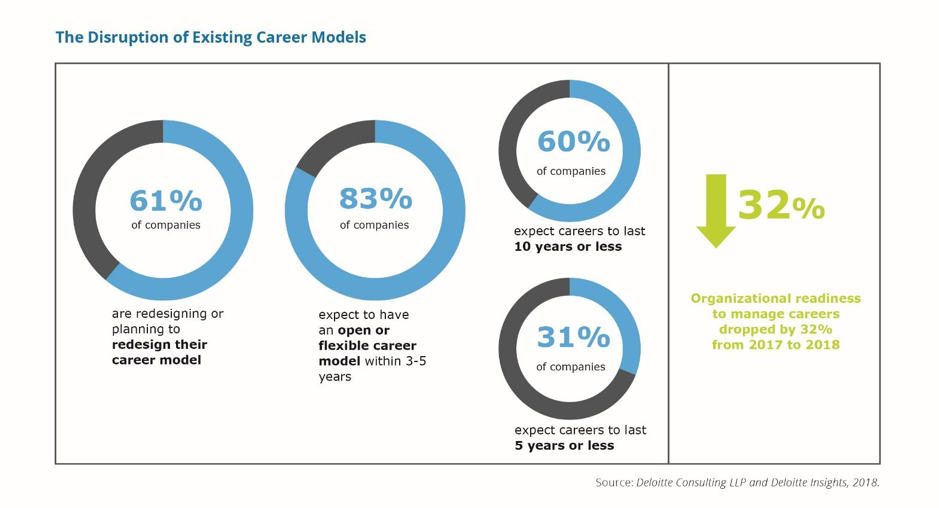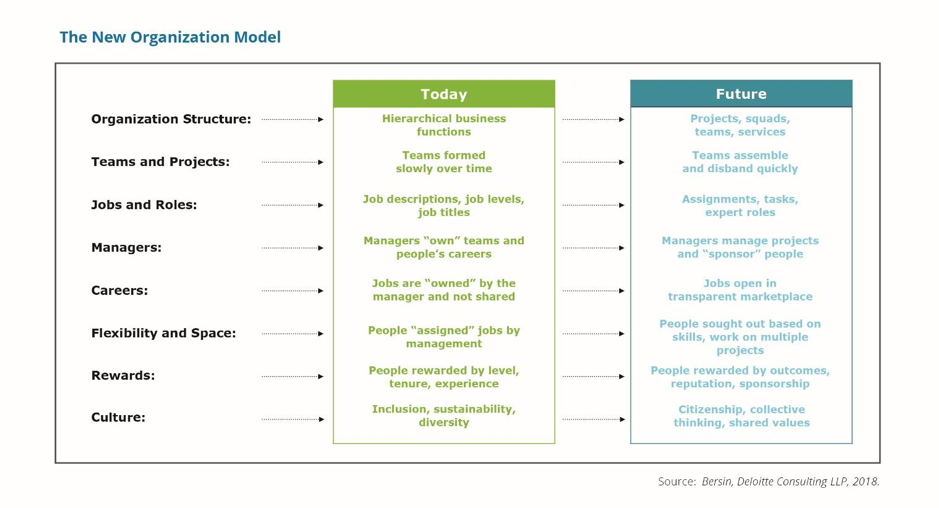Technological and social forces are transforming how work gets done, who does it, and even what work looks like.
And while technology can make workers more productive, there will be significant turbulence as organizations grapple with the complexity and unpredictability of a changing workforce.
In order to address these disruptors, business leaders need to engage in transformative thinking that will not only re-design but re-imagine the way work gets done in their organizations.
They need to think big, start small, become more agile, and—ultimately—move faster than the new realities of work.
Are organizations ready for Industry 4.0?
Deloitte’s
Readiness Report explores senior executives’ views on the impact of Industry 4.0, that is, the industrial change associated with automation and digital technologies.
According to the report, business leaders are uncertain they have the right talent to be successful in this new era of technological advancement.
Only 25% are highly confident that their workforce has the skill sets needed for the future.
Only 14% are highly confident in their ability to harness the changes associated with Industry 4.0. Yet 86% of business leaders think they are doing all they can to build the right workforce. Even more surprising, less than 20% of business leaders regard talent and HR issues as a high priority.
In a nutshell, leaders don’t seem to think radical change is needed to get them where they need to go.
To be sure, the likelihood of an entire profession disappearing due to automation is low. It is far more likely that parts of an occupation will be replaced by technology.
Human talent will be working alongside artificial intelligence, machine learning, natural language processing—or anything that can replace tasks in a business process and make them quicker, more accurate, and less costly. In this scenario, the most suitable resource, be it technological or human, can now be matched to deliver the most productive outcome.
Naturally, this has implications for the workforce and completely disrupts traditional talent models. Organizations will have to find the right balance of humans and machines to complement each other, re-designing roles to maximize talent and potential.

Augmentation also challenges current talent structures and practices by making them more flexible. Workforces will become more and more contingent, with off-balance sheet workers (freelancers, contractors, and gig workers) increasingly utilized by businesses who want to capitalize on access to the smartest people to solve complex business problems.
From the workers’ perspective, such augmentation through technology means people can now decide where best to work, whether it’s from an office or at home, in a satellite space, or in shared workspace.
This fits the Millennial and Gen Z value of flexibility in the workplace—a key finding from the
Deloitte Millennial Survey 2018. For these workers, the gig economy’s increased income potential and flexibility hold great appeal. According to the survey, a clear majority have already taken on such roles or would consider doing so.
This is of particular importance in Asia, where almost
60% of the working population is 28 years old, compared to 40% globally. With the vastly different career expectations of this age group, organizations need to adjust talent models to attract and retain the workers that will take their business into the future.
Remaining relevant in the future of work
The half-life of a skill has dropped from 30 years to an average of 6 years. This holds true even for fresh university graduates. This means that the model of “learn at school” and “do at work” is no longer sustainable and constant reskilling and lifelong learning will be a way of life at work.
According to the
World Economic Forum’s Future of Jobs report, reskilling is the top priority for organizations looking at their future workforce strategy. And with working lives getting longer, reskilling is important for all workers, not just the young.
Individuals, companies, and educational institutions must find collective and elegant solutions that work for everyone and must push for smart ways to promote fairness and progressive thinking at work.
Governments and policy makers can play a role in this new paradigm by showing bolder leadership in education and labor market regulations and by developing standards that enable and accelerate future of work opportunities.
A collective response will create the platforms that enable and empower individuals to reinvent themselves to embark on new pathways and progress their careers.

![]()
Business leaders can no longer be passive consumers of ready-made human capital. They need to put talent development and workforce strategy front and center in their growth plans. This requires a new mindset to understand the challenges workers face and evolve talent programmes and models that unlock their potential.
*Chief Executive Officer at Deloitte South East Asia






